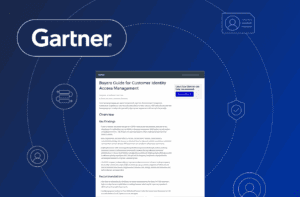As more and more business is conducted online, customers are entrusting businesses with greater amounts of their personal data — making data security increasingly important to businesses and customers alike. According to Cisco’s 2022 Consumer Privacy Survey, over 80% of customers consider data handling as a factor in their purchase decisions. This demand is being increasingly reflected in countries’ laws as well, resulting in an increase in regulations designed to protect personally identifying information (PII). This data, often referred to as Sensitive Personal Information (SPI), includes any information that can be used to identify an individual, such as names, addresses, dates of birth, Social Security numbers and biometric information.
With this rise in data collection and increased scrutiny around how data is handled, it’s more important than ever for companies to be aware of the importance of protecting their customers’ personal information and to understand how to handle this data responsibly. This blog will explain why securing PII is so important, best practices for preventing data leaks and some of the safeguards we use at Transmit Security to keep our customers’ data secure.
Why protecting customers’ personal data is important
There are several reasons why protecting customers’ personal data is critical. First and foremost, it’s the right thing to do. Customers trust companies with their personal information, and it’s the company’s responsibility to protect that information in order to maintain their users’ trust.
Additionally, data breaches that expose customers’ PII can have serious consequences for both the company and its affected customers. In the event of a breach, sensitive information like Social Security numbers, credit card information and other PII can be stolen and used for identity theft or other fraudulent activities. This can result in significant financial losses for customers, as well as reputational damage and legal liability for the company. According to IBM’s 2022 Cost of a Data Breach Report, the average total cost of a data breach worldwide is $4.35 million — the result of a wide range of factors including legal costs, loss of brand equity, customer turnover and technical activities to contain the breach.
Moreover, many countries have implemented strict data protection laws, such as the General Data Protection Regulation (GDPR) in Europe and the California Consumer Privacy Act (CCPA) in the United States. These regulations not only apply to businesses located in Europe and California, but those that collect or process data from users in those regions. Companies that fail to comply with these regulations can face significant fines and legal consequences.
How to handle customers’ personal data responsibly
To meet increasingly high user expectations around data handling and comply with regulations governing the use of PII, businesses should take the following steps:
- Limit the amount of data collected: It’s important to only collect the personal data that is necessary for the specific purpose for which it is being collected — both to limit liability and ensure compliance with laws that regulate how customer data is used. Companies should avoid collecting information that they don’t need or won’t use.
- Securely store data: Implement and follow common best practices for securely storing and encrypting customers’ personal data. Companies should also implement strict access controls to ensure that only authorized personnel have access to the data.
- Regularly assess and update security measures: Technology evolves quickly, so it’s important for companies to regularly assess and update their security measures to ensure that they are adequately protecting customers’ personal data.
- Properly dispose of data: When personal data is no longer needed, it should be securely disposed of to prevent unauthorized access or misuse.
- Be transparent about data collection and usage: Companies should be transparent about the personal data they collect and how it will be used. Customers should also be informed about their rights to access, correct, or delete their personal data — a key component of the GDPR and other data privacy laws worldwide.
- Train employees on data protection: All employees should be trained on the importance of protecting customer personal data and on the company’s policies and procedures for handling this information.
How does Transmit Security handle customers’ personal data?
Identity is the most important aspect of cybersecurity, but most IDPs aren’t security experts, requiring businesses to constantly patch identity platforms with third-party security solutions, resulting in security blind spots that can lead to data breaches or practices that unintentionally expose customers’ PII.
At Transmit Security, we bring a deep knowledge of cybersecurity to identity management. This expertise spans from our founders — who have twenty years of cybersecurity innovation — to a dev team with more than 90% of its members possessing profound cybersecurity experience.
With this background, we’ve created an identity platform that was built from the ground up with security in mind and put into place additional safeguards in place that ensure that the personal data of our customers — and theirs — remains secure and private:
- Authentication: Data cannot be accessed without strong authentication, and the PII in it is not accessible to humans.
- Per tenant encryption: Data is encrypted with a unique key per tenant, which makes the data much harder to use in the event of a data breach.
- Custom data retention: We enable our customers to determine how long their data is retained for during each session. This ensures that we restrict data retention to the minimum necessary timeframe while still providing the flexibility to accommodate different workflows that require tighter or less restrictive data handling.
- Least-privilege access We maintain a small team with strict access policies to further diminish the attack surface.
- Avoidance of PII for model training: This ensures that the large datasets needed to train and evaluate machine learning models do not compromise personal data privacy and security.
Reducing the risk of a data breach
Protecting customer personal data is not only an ethical obligation, it’s essential for the long-term success of any company in the digital age — especially as end users and legislators become more concerned with data security and take steps to hold businesses accountable for it. As we’ve seen over the past months, even the most trusted and secure companies are susceptible to data breaches that expose customers’ personal information.
Ultimately, no one is immune to data breaches, but these three rules can significantly reduce your risk:
- Do not save any unnecessary data.
- If data must be saved, store it for the least amount of time possible.
- While data is stored, protect it with best practices
By ensuring that your data is not only harder to access, but limiting what can be gained from overcoming the safeguards you’ve put into place, you can make your company a less worthwhile target for attackers. In doing so, companies can help ensure the security of their customers’ personal information and maintain the trust that customers place in them.



